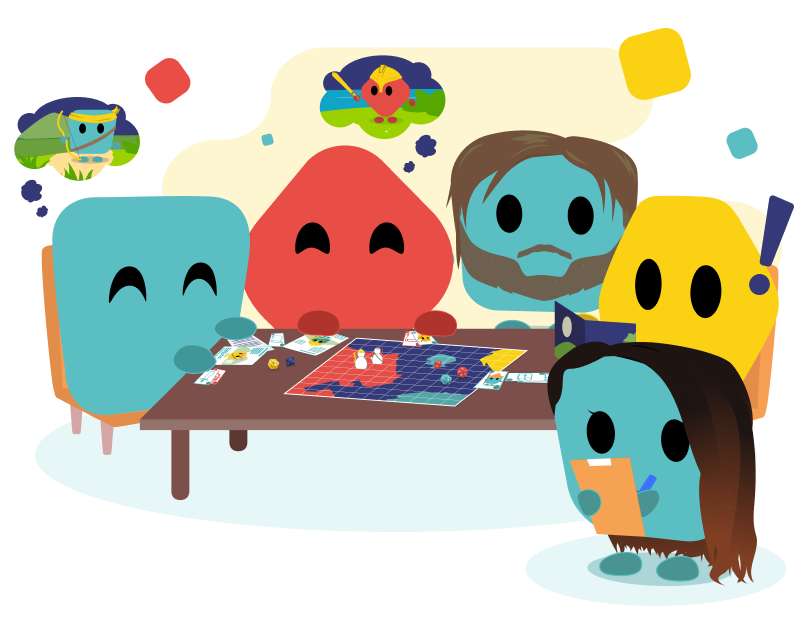- Project
- Underway
Role play, emotional dysregulation and interpersonal relationships

Aurélien Richez and Elsa Brais-Dussault Psychologists and Doctors in Psychology
Aurélien Richez is a Doctor in Psychology and Neuropsychologist at Lenval Hospital in Nice, specializing in counselling after psychological trauma, especially with young people.
Elsa Brais-Dussault is a clinical psychologist, researcher and mental health trainer. She works with teenagers and adults using a collaborative approach.
-
Project start date :
2021/10/04 -
Status :
Underway -
Research organization :
LudiPsy, Association Innovation Alzheimer, Nice University Hospital – Côte d’Azur University, Cognition – Behavior – Technology (CoBTeK) -
Team :
Christophe Debien, Geoffrey Marcaggi
In 2021, Game in Lab selected Dr Elsa Brais-Dussault and Dr Aurélien Richez’s research project on the creation of an observation grid of beginner player behaviors in role-playing games. This project follows up on a Game in Lab event that was held during Brain Awareness Week 2021, proposing experiments with role-playing games to manage emotions and collective situations of conflict or stress.
Project overview
Emotional regulation processes (perception and action on one’s own emotions and those of others) are frequently studied in experimental psychology, as is the care of emotional dysregulation in the clinical field. In this context, role-playing games represent an interesting experimental study object for emotional regulation. The objective of this research project is to develop and validate an observation grid of emotional regulation behaviors during a role-playing game session. It involves evaluating the ability of beginner players to perceive and express emotions through role-playing game.

Methodology
A series of systematized observations of interactions between players during a short role-playing game campaign (seven sessions) is conducted. Sessions are filmed and recorded. Players’ emotional regulation behaviors are evaluated on the basis of the recordings, according to an observation grid developed and tested in this study. Players complete questionnaires on their affects and emotions before, during and after the game campaign.
Outcomes
The observation grid developed can serve as a conceptual basis for other research projects and be incorporated into training, supervision and integration processes of role-playing in mental health care. As the project had to be postponed, the results are expected later.
